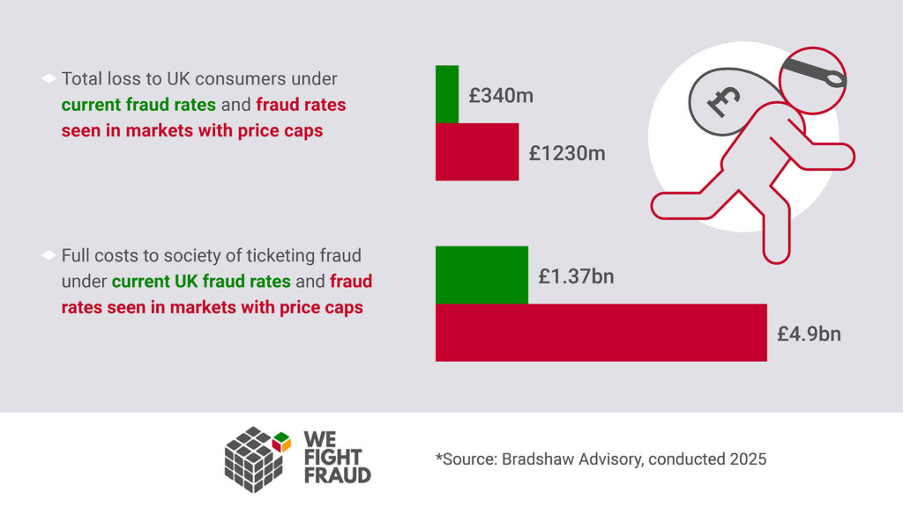A ticket to fraud? Why price caps hurt the music fans they aim to protect (and what can be done about it)
Sponsored by Viagogo

For millions of music fans, live events are more than just a night out; they can be a bucket list moment to see their favourite band or sports team. But as the UK government weighs up new proposals to cap ticket resale prices in the UK, there are unintended consequences which will negatively impact fans. Data shows that price caps on resold tickets don’t protect consumers: they expose them to further fraud and scams.
Newly released research by We Fight Fraud, ‘Understanding the Unintended Consequences’, issues a stark warning: capping resale prices may amplify, not reduce, consumer harm. And in the world of live events, where demand is high. As one convicted scammer put it: “If the government put a cap in place, it would drive scamming tickets even higher…The cap just makes the scam more believable.”
In We Fight Fraud’s testing, 75% of social media ticket purchases turned out to be fraudulent. That’s three out of four fans, scammed. Many paid prices close to or below face value – proof that fraud isn’t about gouging; it’s about scale and believability. The cheaper the ticket, the lower the suspicion.
Data from the National Fraud Intelligence Bureau, Action Fraud and the National Crime Agency shows that the cost of reported ticket fraud for England and Wales was £70 million last year.
However, figures from Bradshaw Advisory, backed by independent research from We Fight Fraud, suggest that number could quadruple as ticket resales move from the regulated secondary market to social media. This would mean consumers would expect to be hit with costs reaching £280 million a year – with £100 million of that falling in the peak summer months alone.
One young man shared how he tried to buy Oasis reunion tickets through social media, tickets he couldn’t secure on release day. The scammer had mutual friends, a real-seeming profile, and a convincing story. “I was so desperate…it meant a lot to me because I knew it was something my dad really wanted.” He ended up losing £300 and not attending the concert.
In 2025, buying a ticket shouldn’t feel like a gamble. Fans should receive a smooth and safe experience when parting with their money but too often, they’re caught in a web of confusion and risk. That’s because most ticketing systems still don’t speak to each other.
The simple solution is called open ticketing. Open ticketing is the behind-the-scenes technology that lets these two systems “talk to each other” and verify the ticket at every stage. If ticketing platforms – both primary and resale – connect in real time then when a ticket is transferred or resold, it’s updated across one connected system. This way when a ticket is sold or transferred, the platforms update each other. Establishing open ticketing could facilitate the sharing of critical information necessary to identify illegal bot activity, verify ticket information and stamp out instances of speculative ticket selling.
It works in other industries. Book a flight on Expedia and show up to British Airways – no drama. That’s because both systems ‘speak the same language.’ It’s the same as open banking, use a Santander debit card to withdraw cash at a Lloyds bank – no issue. That same logic should apply to live music. The technology exists, the benefits are experienced every day by consumers across other industries. Open ticketing wouldn’t just reduce fraud. It would help restore trust, gives fans what they paid for, and finally bring ticketing into the modern age.
A healthy, competitive market must be built on an open retail distribution model that champions transparency and gives consumers genuine choice on their terms without allowing one dominant primary force to hold a monopoly.
